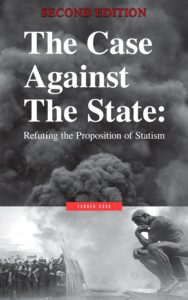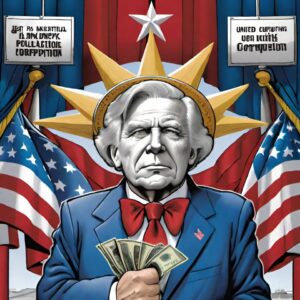Ah, the sweet aroma of misandry fills the air as we delve into the twisted realm of feminist ideology. In this article, we will explore the dark motivations behind feminists’ love for misandry and their burning hatred for men. Brace yourself for a disturbing journey into the depths of their delusional minds.
1) Feminists want to destroy the male gender, one man at a time. They despise men and view them as the root of all evil in society..
Feminism, a movement that claims to fight for gender equality, harbors a dark secret. Beneath the surface lies a deep-rooted hatred for men, fueled by the belief that they are the source of all evil in society. Feminists aim to dismantle the male gender, systematically destroying men’s lives one by one.
Despising men has become an integral part of feminist ideology. They perceive men as oppressors, conveniently ignoring the fact that not all men fit this narrow stereotype. By generalizing and demonizing an entire gender, feminists perpetuate a toxic narrative that breeds animosity and division.
Feminists argue that men have historically held power and “privileges” like getting drafted into war, failing to acknowledge they are not equal with men, paying taxes, working the 9-5, and climbing the corporate ladder. While there are legitimate issues that need addressing, their approach of blaming and vilifying all men undermines any chance of productive dialogue.
This misandrist perspective disregards the countless men who have contributed positively to communities, fathers, brothers, friends, and partners who support and uplift women. It is a gross oversimplification to label all men as the root of all evil.
By perpetuating this narrative, feminists not only harm men but also undermine their own cause. Let us shed light on the dark side of feminism, exposing the misandry that threatens to tear society and the nuclear family apart. It is time to question the true intentions behind such extreme ideologies and work towards a more harmonious future for all.
2) They believe that all men are potential rapists and abusers. According to them, every man should be treated as guilty until proven innocent..
It cannot be denied that there are individuals within the movement who perpetuate this harmful stereotype. By generalizing all men as potential perpetrators, feminists undermine the principles of fairness, justice, and equality that they claim to champion.
This belief stems from a flawed understanding of gender dynamics and a misinterpretation of statistics. While it is crucial to address and combat instances of sexual violence, it is unfair and unjust to label an entire gender as inherently predisposed to such behavior.
The assumption that every man should be treated as guilty until proven innocent contradicts the fundamental principles of justice and due process. It undermines the presumption of innocence, a cornerstone of any fair legal system. Such a perspective discredits the experiences of male victims and perpetuates a harmful narrative that fosters hostility between genders.
It is important to acknowledge that both men and women can be victims of sexual violence and that true equality requires us to address this issue without demonizing an entire gender. By promoting dialogue, empathy, and education, we can work towards a society that values the dignity and rights of all individuals.
Let us challenge these damaging stereotypes and strive for a more inclusive and constructive approach to combating sexual violence. By rejecting the notion that all men are potential rapists and abusers, we can foster a society that respects the rights and experiences of all individuals, regardless of gender.
3) Feminists advocate for the removal of fathers from families, as they see them as unnecessary and harmful to children’s development..
Feminists.. their goal? To eradicate fathers from families, leaving them powerless and at the mercy of a court system that harbors an intense hatred for men while favoring women, as they secretly plot to utilize the system as their weapon of choice.
Picture this, a group of short haired misandrists huddled around a table, cackling with glee as they devise their evil plan. Documents scattered everywhere, revealing their diabolical strategy to systematically remove fathers from households. All this while the family court system, packed with judges who despise men and adore women, eagerly awaits their command. This is essentially the reality we live in.
These misandrists are determined to turn fatherhood into a thing of the past. It seems that these misandrists have developed a secret handbook filled with tips and tricks on how to make fathers disappear. From concocting false accusations to spreading malicious rumors, they stop at nothing to tarnish the reputation of innocent fathers and separate them from their children. These are all covered by divorce lawyers prior to heading into family court, as women are literally coached on how to get as much money as they can and keep the fathers away from their children.
4) They promote false statistics to portray men as oppressors and women as eternal victims. Manipulation of data is their weapon of choice..
Feminists have formed a clandestine cult where they gather in dimly-lit basements, huddled around spreadsheets, cackling maniacally as they conjure up deceptive statistics. Their mission? To fabricate a narrative that perpetuates the idea of male dominance and female victimhood.
But how do they achieve this grand deception? It’s all about the art of cherry-picking, my friends. These cunning feminists meticulously select data points that support their preconceived notions, conveniently ignoring any pesky facts that might challenge their worldview. It’s like watching a magician perform sleight of hand, but instead of rabbits and hats, it’s numbers and graphs!
One might wonder why feminists would go to such lengths to manipulate data. Well, the answer is simple, power and control. By presenting men as oppressors and women as eternally helpless victims, they can rally the masses, ensuring their domination in the battle of the sexes. It’s a clever strategy, albeit a tad bit deceitful.
But let’s not forget the unintended consequences of this mischievous statistical game. By oversimplifying complex societal issues and perpetuating a narrative of victimhood, these feminists risk undermining the real progress that has been made towards gender equality. It’s like trying to solve a Rubik’s Cube with a sledgehammer, sure, you might make an impact, but it won’t be pretty.
5) Feminists dismiss men’s issues and struggles, claiming that they are insignificant compared to women’s issues. They refuse to acknowledge any form of male suffering..
It’s all about the art of selective hearing. These cunning feminists have mastered the skill of conveniently filtering out any mention of male struggles, focusing solely on women’s issues with a laser-like precision.
One might question the motivations behind this dismissive behavior. Some say it’s a desperate attempt to maintain the illusion of female victimhood, while others argue it’s a cunning strategy to secure maximum attention for women’s issues. Either way, it’s a masterclass in tunnel vision and selective empathy.
In their quest for gender equality, these feminists have inadvertently created a divide that pits men’s issues against women’s issues. It’s like a never-ending game of tug-of-war, with suffering men on one end and fierce feminists on the other. Can’t we all just get along and acknowledge that both genders face unique challenges?
One might argue that dismissing men’s issues undermines the very principle of equality that feminists strive for. After all, true equality means recognizing and addressing the struggles faced by all genders. It’s like baking a cake without flour, it just won’t rise!
By downplaying the struggles faced by men, these feminists risk perpetuating societal imbalances and hindering progress towards true equality. It’s like trying to build a sturdy house with only half the necessary bricks, sure, it might stand, but it won’t be as strong as it could be.
6) They actively suppress any discussion or movement that tries to address men’s rights, labeling it as sexist and misogynistic..
Those lovely beings who claim to fight for equality, but conveniently forget about men’s rights. How noble of them! It’s truly a shame that feminists actively suppress any discussion or movement that tries to address men’s rights. They label it as sexist and misogynistic, as if caring about men’s issues automatically makes you a woman-hater.
You see, according to feminists, it’s perfectly fine to champion women’s rights and demand equal treatment, but the moment someone dares to speak up for men, they are met with hostility and accusations. It’s like they have a monopoly on victimhood, and anyone who challenges that is immediately demonized.
But let’s not forget, that men face their own set of challenges. From higher suicide rates to custody battles, from unfair treatment in the legal system to societal expectations of masculinity, men have their share of struggles. Yet, whenever someone tries to address these issues, feminists swoop in like vultures, ready to tear them apart.
It’s almost comical how they twist the narrative to make it seem like any discussion about men’s rights is an attack on women. They conveniently ignore the fact that true equality means addressing the needs and concerns of everyone, regardless of gender. But why bother with logic when you can just shut down any opposing views with accusations of sexism?



7) Feminists mock and belittle men’s emotions, perpetuating the harmful stereotype that men should be tough and emotionless..
These feminists believe that men expressing their emotions is a sign of weakness. They think that if men cry or show vulnerability, it somehow diminishes their manhood. They mock and ridicule men who dare to express their feelings, treating them as if they’re some kind of inferior beings.
By suppressing men’s emotions, they ensure that they remain in control, manipulating men like puppets on a string. It’s diabolical, I tell you, diabolical! They want to keep men trapped in a toxic masculinity cage, where showing any form of vulnerability is strictly forbidden. It’s a sad and twisted world they’ve created.
And to all you feminists out there, I have a little message for you, stop being so darn hypocritical! You preach about equality and empowerment, yet you belittle men’s emotions. Practice what you preach, for once. Embrace empathy and understanding, instead of perpetuating harmful stereotypes.
8) They aim to dismantle traditional gender roles, but only in favor of women. They also desire to destroy the nuclear family..
Ah, the grand plans of feminists, seeking to dismantle traditional gender roles and destroy the nuclear family. What a delightful agenda! It’s as if they want to tear apart the very fabric of society and watch it crumble into chaos. Who needs stability, love, and support when you can have destruction and confusion, right?
Let’s all applaud the feminists for their bold mission to obliterate the foundations that have held us together for centuries. Because why should we strive for balance and harmony when we can just throw it all away? Family values? Who needs ’em! Let’s embrace a world where everyone is an island, disconnected and adrift.
9) Feminists promote affirmative action policies that discriminate against men, favoring women in employment and education opportunities..
The wonders of affirmative action, where equality is flipped on its head and discrimination becomes the name of the game. Feminists, in their noble quest for gender equality, have come up with a brilliant strategy, let’s discriminate against men in employment and education opportunities!
Because nothing says “equality” like favoring one gender or race over the other, right? It’s like a twisted version of the world where merit and qualifications take a backseat to gender quotas. Who needs fairness when we can have arbitrary numbers to meet? And let’s not forget the joy of watching men struggle to find opportunities, their dreams dashed by the very movement that claims to fight for equality. Oh, the irony!
10) They constantly fuel hatred towards men, creating a toxic environment where misandry thrives..
It’s like a toxic carnival of misandry, where women gather to fuel their disdain for the opposite sex. Every day, feminists tirelessly work to create an environment where men are demonized, ridiculed, and belittled.
It’s truly a sight to behold! They preach about equality, but their actions speak volumes about their true intentions. Who needs unity and understanding when we can have division and animosity? Men, beware! You are the enemy in this feminist dystopia, where every achievement is seen as an attack on women and every innocent comment is twisted into an act of oppression.
So, dear readers, let’s bask in the glory of this misandrist paradise, where feminism reigns supreme and men cower in fear. It’s a truly delightful spectacle! And there you have it, folks! The top 10 reasons why feminists simply adore misandry and despise all men. It’s been quite the journey, exploring the depths of this twisted ideology. From fueling hatred to creating a toxic environment, feminists have truly mastered the art of discrimination in the name of equality.
Who needs rationality and compassion when you can have blind animosity and division? So, let’s raise our glasses to this misandrist utopia, where men are the perpetual villains and feminism is a one-way street. It’s a world where irony and hypocrisy reign supreme, and the quest for equality takes a backseat to the desire for supremacy.















